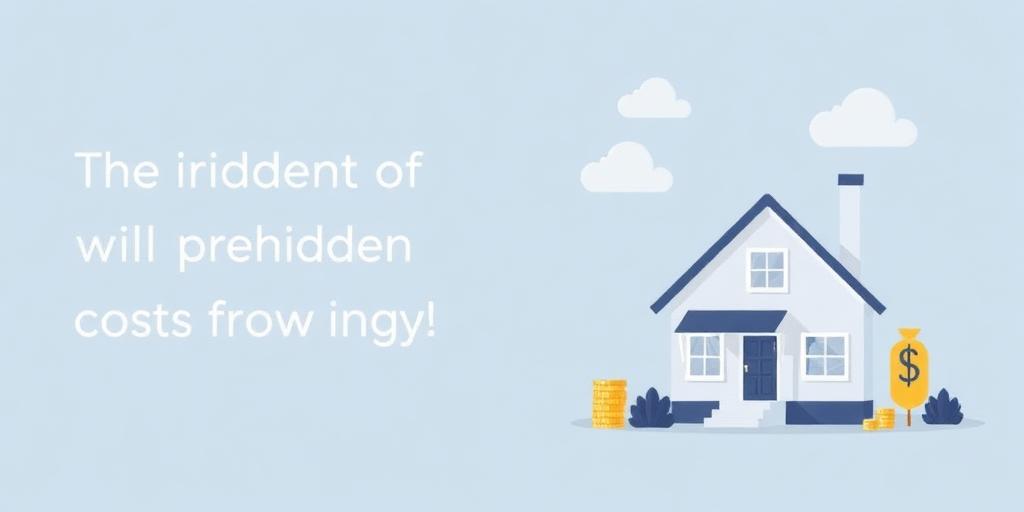The Hidden Costs of Buying Property
Buying property is often touted as a cornerstone of financial stability and wealth creation. While it certainly can be a valuable asset, prospective buyers must be aware of the often-overlooked costs that extend far beyond the initial purchase price. Failing to account for these hidden expenses can strain your finances and turn your dream home into a financial burden.
1. Closing Costs: The Initial Sting
Closing costs are a collection of fees and expenses associated with finalizing the property transaction. These typically range from 2% to 5% of the loan amount and can include:
- Appraisal Fees: Lenders require an appraisal to assess the property's market value.
- Title Insurance: Protects against any claims or disputes over the property's ownership.
- Loan Origination Fees: Charged by the lender for processing the loan.
- Attorney Fees: For legal representation during the closing process.
- Recording Fees: For officially recording the deed and mortgage with the local government.
2. Property Taxes: An Ongoing Obligation
Property taxes are levied by local governments to fund public services like schools, infrastructure, and emergency services. These taxes are typically assessed annually and can vary significantly depending on the location and the property's assessed value. It's crucial to research the property tax rates in your desired area to accurately estimate this ongoing expense.
3. Homeowners Insurance: Protecting Your Investment
Homeowners insurance is essential for protecting your property against damage from fire, storms, theft, and other covered perils. Lenders typically require homeowners insurance as a condition of the mortgage. The cost of homeowners insurance depends on factors such as the property's location, size, construction, and the coverage limits.
4. Maintenance and Repairs: A Constant Companion
Unlike renting, owning a property means you are responsible for all maintenance and repair costs. These can range from minor repairs like fixing a leaky faucet to major expenses like replacing a roof or HVAC system. It's wise to set aside a portion of your budget each month for potential maintenance and repair needs.
5. Private Mortgage Insurance (PMI): If You Don't Have 20% Down
If you put less than 20% down on your home, your lender will likely require you to pay private mortgage insurance (PMI). PMI protects the lender if you default on your loan. Once you've built up enough equity in your home (typically 20%), you can request to have PMI removed.
6. Homeowners Association (HOA) Fees: Community Living Costs
If you buy a property in a planned community or condominium, you will likely be required to pay HOA fees. These fees cover the cost of maintaining common areas, amenities, and services such as landscaping, snow removal, and security. HOA fees can vary widely depending on the community and the services offered.
7. Unexpected Expenses: The Unforeseen Challenges
Even with careful planning, unexpected expenses can arise. These might include:
- Special Assessments: One-time fees levied by HOAs for major repairs or improvements.
- Appliance Failures: Replacing a refrigerator, washing machine, or other appliance.
- Pest Infestations: Dealing with termites, rodents, or other pests.
Conclusion: Informed Decisions for Successful Homeownership
Buying property is a significant financial undertaking. By understanding and accounting for the hidden costs associated with homeownership, you can make informed decisions, avoid financial surprises, and enjoy the long-term benefits of owning your own home.









